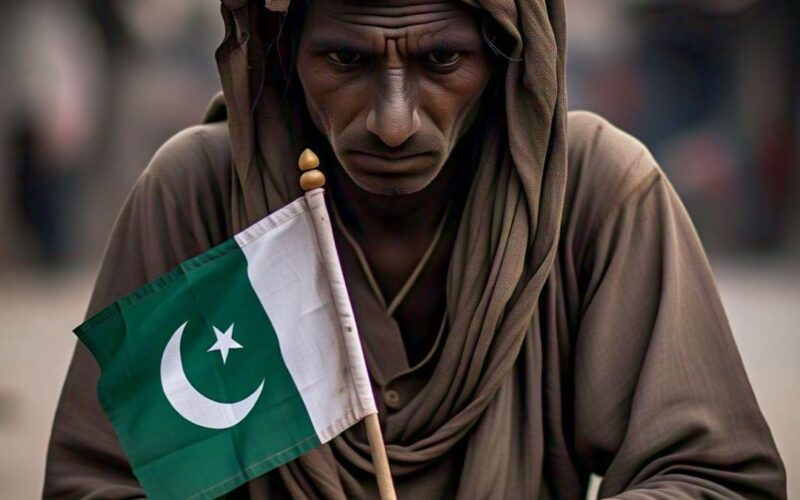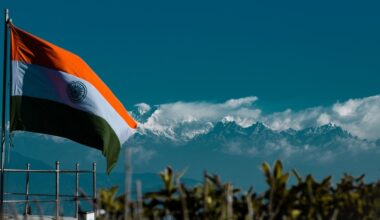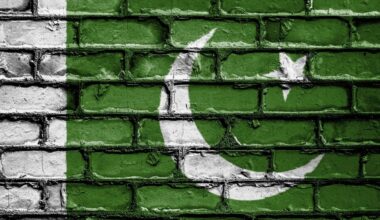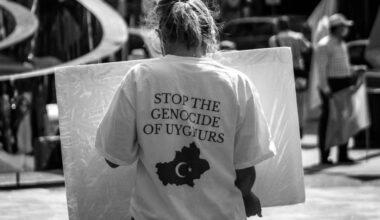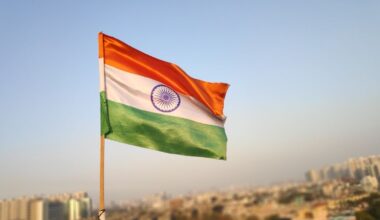Pakistan, founded in 1947 with great hopes for progress, development, and unity, has found itself in an increasingly fragile and dependent state. A major contributor to its current predicament is the rise of religious fanaticism, particularly in the past few decades. Once a country with the potential to become a regional powerhouse, Pakistan has increasingly become a nation reliant on foreign aid, plagued by internal conflicts, and stricken by poverty. Religious extremists have played a critical role in shaping the policies and direction of the country, leading to a situation where Pakistan’s development has stagnated, and its sovereignty has eroded. This article explores how religious fanaticism has transformed Pakistan into a beggar nation, both economically and politically.
The Rise of Religious Extremism in Pakistan
The rise of religious fanaticism in Pakistan can be traced back to the 1980s, during the regime of General Zia-ul-Haq, who sought to Islamize the country’s laws and institutions. Zia’s policies, which included the introduction of Shariah laws and the encouragement of jihadist ideology, laid the groundwork for religious extremism to take root in the country. With the support of the United States in its fight against the Soviet invasion of Afghanistan, Pakistan became a hub for militant groups, some of which were financed and trained by Western powers. This involvement in Afghanistan’s conflict provided Pakistan with military aid but also led to the proliferation of armed religious groups and the spread of extremist ideologies.
As these religious factions gained power, they began to influence Pakistan’s political and social fabric, pushing the nation toward more conservative and intolerant policies. Religious extremism permeated all levels of government, from lawmaking to education, making it increasingly difficult for Pakistan to maintain a secular, progressive stance. This shift played a significant role in eroding the country’s political stability and social cohesion, driving economic decline and increasing dependence on foreign assistance.
Economic Decline and Dependency
The impact of religious extremism on Pakistan’s economy has been devastating. As the influence of extremist groups grew, the government shifted its focus from nation-building and economic development to addressing security concerns and appeasing religious factions. Pakistan became embroiled in ongoing conflicts, particularly with its neighbor India, while simultaneously dealing with growing internal violence from sectarian and terrorist groups. This focus on military spending and counterterrorism efforts drained national resources, diverting funds away from crucial sectors such as infrastructure, education, healthcare, and industry.
Pakistan’s economy, once buoyed by industries like textiles, agriculture, and manufacturing, began to falter under the weight of mismanagement and lack of investment. Religious fanatics pushed for policies that undermined progressive economic reform and stifled innovation. The increasing rise of violence and instability led to foreign investors pulling out, and industries were left to operate in an environment marked by corruption, lawlessness, and fear.
By the 21st century, Pakistan found itself relying heavily on foreign aid to sustain its economy. The country became dependent on loans from international organizations like the International Monetary Fund (IMF) and World Bank, as well as financial assistance from allies such as the United States and China. This dependency created a vicious cycle where Pakistan was forced to compromise its sovereignty in exchange for financial support, further diminishing its ability to pursue self-sustaining economic growth.
Political Instability and Governance Failures
Religious fanatics in Pakistan have not only affected the economy but also crippled the political system. Extremist groups have played a prominent role in shaping Pakistan’s politics, particularly through the influence of political parties like the Jamiat Ulema-e-Islam (JUI) and others aligned with hardline religious ideologies. These parties have consistently pressured the government to implement policies based on strict religious doctrines, often at the expense of democratic principles and civil liberties.
The constant push for religious orthodoxy has undermined efforts for progressive governance, leading to a political environment marked by instability and corruption. In such an environment, it becomes difficult for the government to prioritize the needs of the people, focusing instead on appeasing religious groups in exchange for votes or support. As a result, Pakistan’s political system has remained stagnant, with little to show in terms of effective governance, sustainable development, or social progress.
Religious extremism also contributed to the rise of terrorism in Pakistan, with groups like the Taliban and Al-Qaeda gaining a foothold in the country. The resulting violence and insecurity have further weakened the state, destabilized entire regions, and led to the displacement of millions of Pakistanis. As the country faced the growing threat of homegrown terrorism, Pakistan’s global image suffered, with the country increasingly seen as a breeding ground for extremism and a hub for militants.
The Social Cost: Violence, Poverty, and Intolerance
Religious extremism in Pakistan has also had a severe social cost. Sectarian violence between Sunni and Shia Muslims, as well as attacks on religious minorities such as Christians, Hindus, and Ahmadis, have become more frequent in recent years. These divisions have torn apart communities and created a climate of fear and hatred. Religious fanatics have used violence to assert their control, targeting anyone who does not conform to their narrow interpretation of Islam.
At the same time, the rise of extremism has stifled education, particularly for women. The spread of conservative religious ideologies has led to a decline in access to education, particularly in rural areas, where traditional values are more deeply entrenched. This has left a significant portion of Pakistan’s population without the skills necessary to contribute to the modern economy, further exacerbating the nation’s economic woes.
The result has been a country that remains trapped in a cycle of poverty, violence, and religious intolerance. With religious extremists holding sway over key political and social institutions, Pakistan’s development prospects have been severely compromised.
